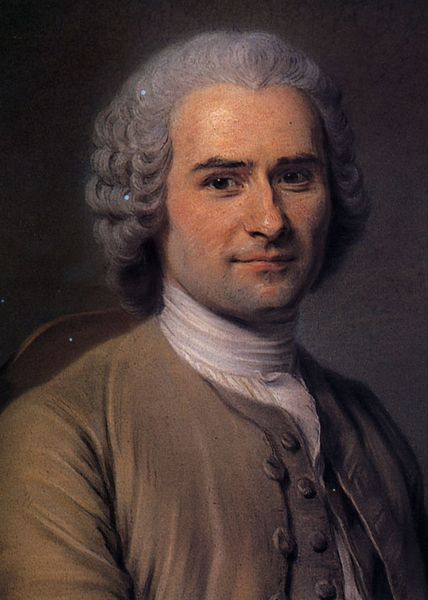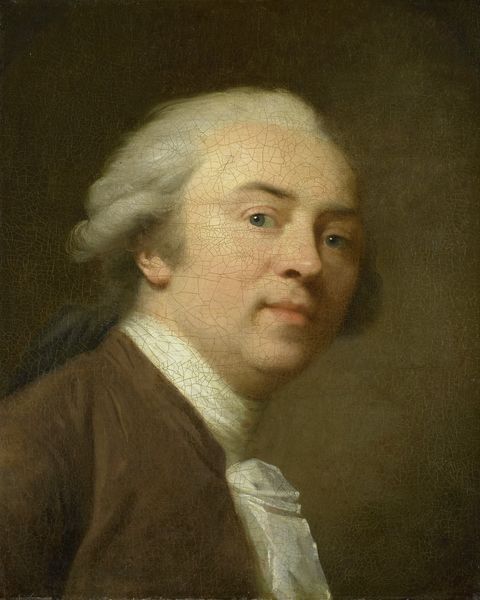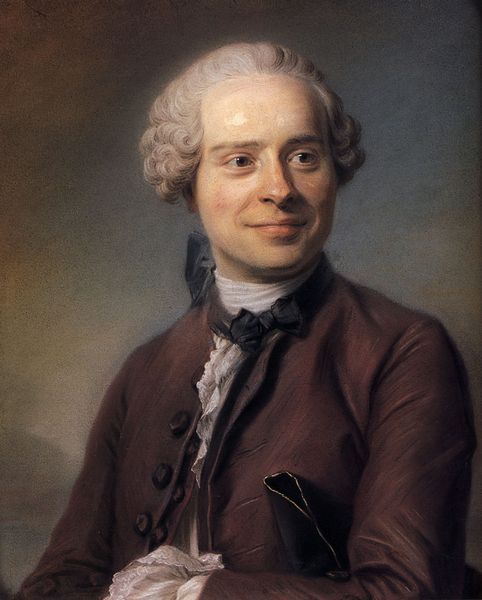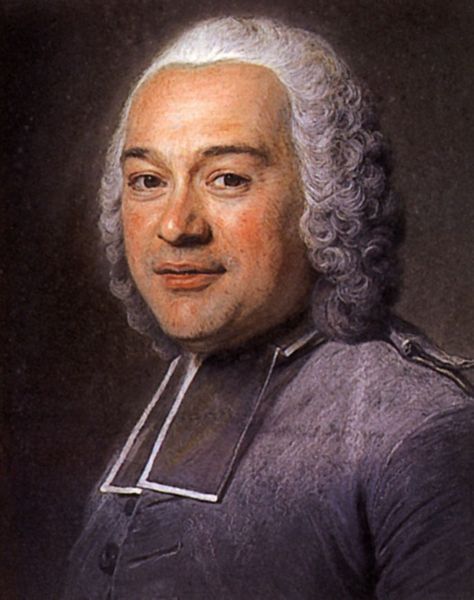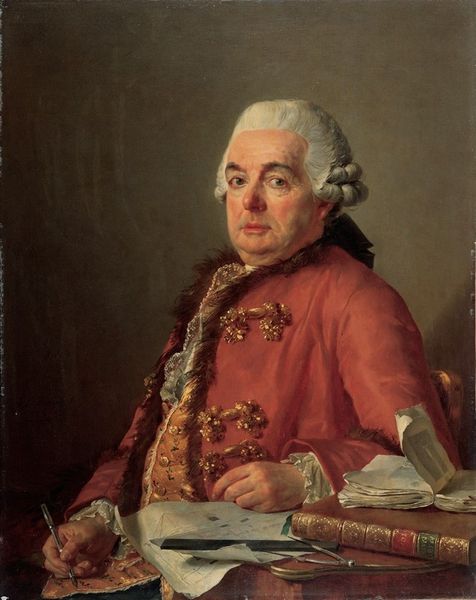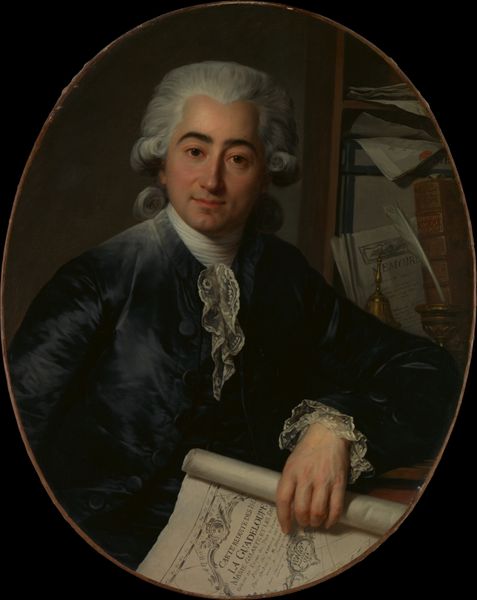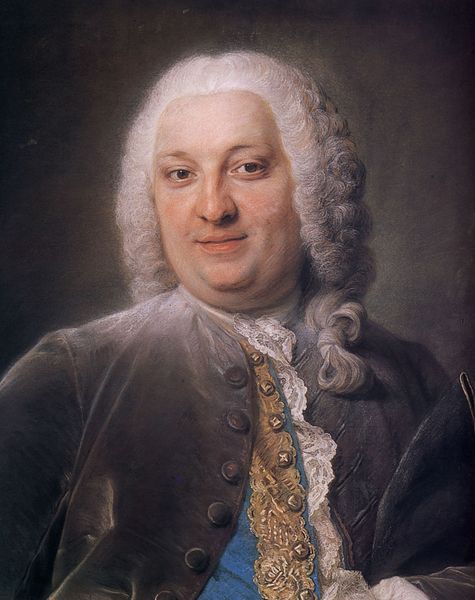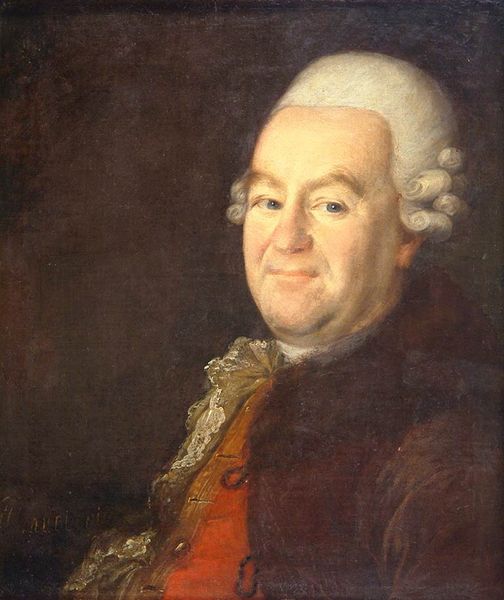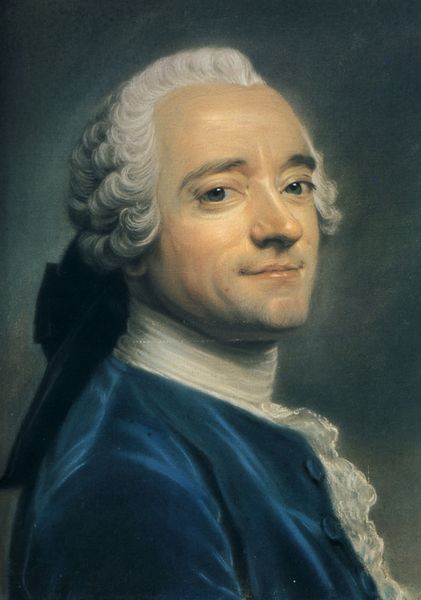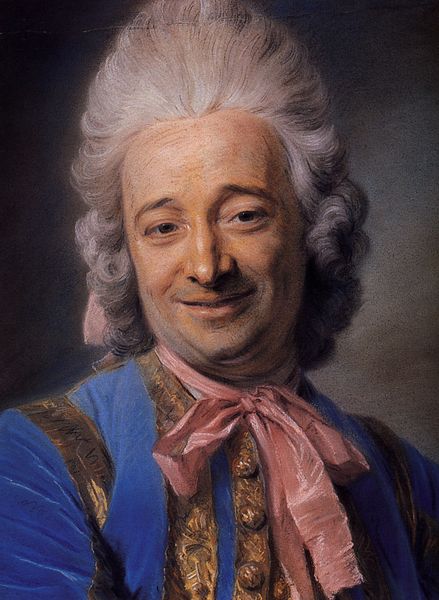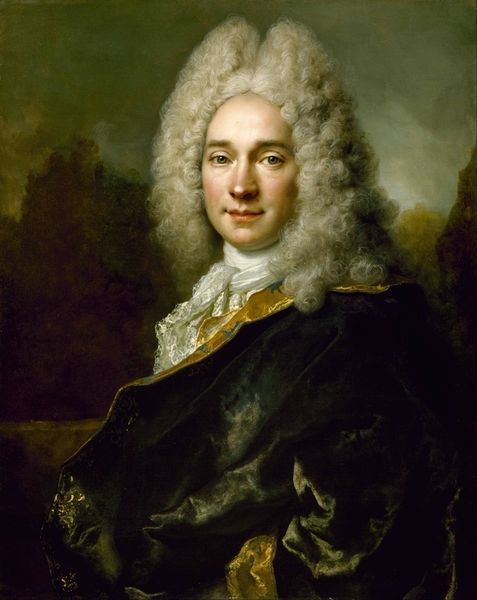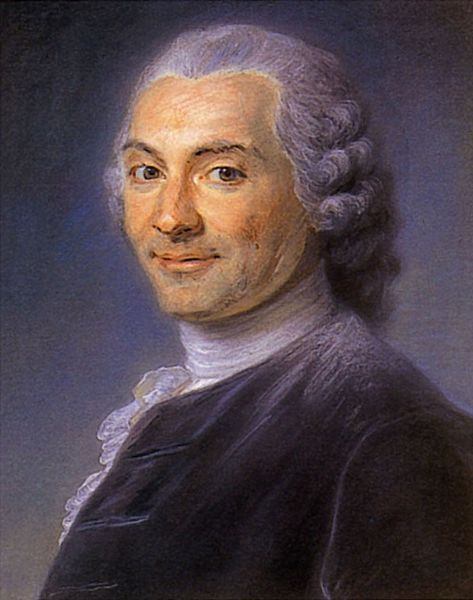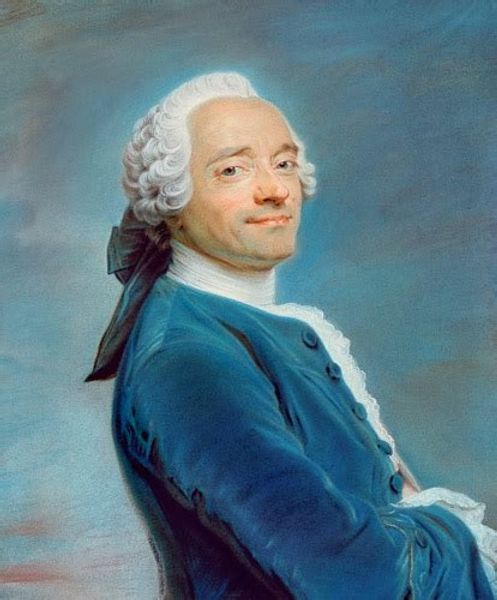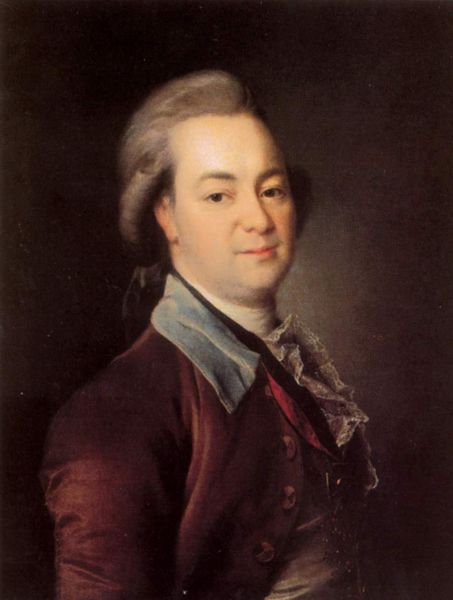
painting
#
portrait
#
baroque
#
portrait
#
painting
#
history-painting
Copyright: Public domain
Curator: Editor: We're looking at Maurice Quentin de La Tour's 1747 portrait of Jean-Joseph Cassanea de Mondonville. It strikes me how… approachable it feels, despite being a formal portrait. What’s your perspective? Curator: Considering its social context, let’s think about pastel as a medium. Pastel allowed for a speed and luminosity oil painting couldn’t offer. Its rise coincides with the burgeoning middle class commissioning art; the rising popularity reveals a shift in artistic consumption, and changes in patronage during the 18th century. Does this give you any ideas? Editor: So, the choice of pastel, a less… intense medium, maybe democratized portraiture somewhat? And the violin suggests musical production. It's interesting how it portrays not just Mondonville, but also his craft and perhaps his social status within that culture of musical production? Curator: Precisely! La Tour has presented Mondonville with the tools of his trade. But who actually manufactured the paper? What pigments were employed, and how accessible were they? Were these materials associated with luxury or widely available commodities? Thinking along those lines, can we see more in this image? Editor: So, going beyond the sitter and considering the broader economic picture… it reveals a lot about the materials available and who controlled their production and distribution. Very insightful. Curator: Examining those elements helps us move past the “great man” theory of art history. Appreciating the material conditions reveals a complex interplay of artistic creation, craft production, and societal structure. Editor: That’s given me a lot to consider about how we view even seemingly simple portraits. Thanks!
Comments
No comments
Be the first to comment and join the conversation on the ultimate creative platform.
